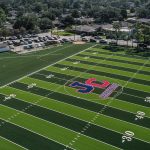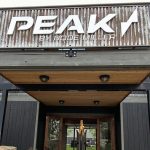Vail Resorts, Inc. reported results for the fiscal year ended July 31, 2009. Commenting on the company's fiscal 2009 results, Rob Katz, Chief Executive Officer said, “I am pleased that Vail Resorts was able to deliver solid results for the fiscal year ended July 31, 2009, given the unprecedented economic environment and its impact on the travel and leisure sectors.”
Katz continued, “The impact of the economic environment continued into the fourth quarter for our Lodging segment, where our properties continued to experience a much closer-in booking window and offered an increased level of promotions and packaging discounts that reduced revenue per available room. RevPAR at our owned hotels, on a same store basis, declined by 10.9% for Fiscal 2009, which was a smaller decline than that experienced by the luxury and the upper upscale segments of the lodging industry as a whole, which had estimated RevPAR declines of approximately 21% and 15%, respectively.”
Mountain Segment
– Mountain segment net revenue was $614.6 million in Fiscal 2009 compared to $685.5 million in Fiscal 2008, a decline of 10.3%.
– Mountain Reported EBITDA was $164.4 million in fiscal 2009 compared to $220.6 million in Fiscal 2008, a decline of 25.5%.
Lift ticket revenue in fiscal 2009 decreased $25.4 million, or 8.4%, from the prior fiscal year primarily due to a 21.1% decrease in visits excluding season pass holders, driving an 18.8% decrease in lift revenue excluding season pass revenue, partially offset by the 21.7% increase in season pass revenue and a 2.9% increase in effective ticket price excluding season passes. The overall visitation decline was primarily as a result of the decrease in visitation from destination guests, partially offset by strong visitation from season pass holders, especially from the new Epic Season Pass holders, who on average skied more in the current year per pass than holders of our other season pass products. Season pass holders used their season passes to a greater degree this season, skiing on average 10.6 times in the 2008/2009 ski season compared to 9.7 times per season pass in the prior season.
Revenues for the company's ski school, dining and retail/rental operations, were all negatively impacted by the severe downturn in the economic environment, which resulted from the decrease in Destination guest visitation as well as an overall decrease in spending per guest. Ski school revenue decreased $16.0 million, or 19.7%, in fiscal 2009 compared to Fiscal 2008, as ski school revenue is primarily driven by Destination guests. Dining revenue decreased $10.2 million, or 16.4%, in Fiscal 2009 compared to Fiscal 2008, due to an approximate 11% decrease in the number of total on-mountain food and beverage transactions, coupled with an even greater decline in fine dining.
Mountain segment operating expenses decreased $19.3 million, or 4.1%, during Fiscal 2009 compared to fiscal 2008, which primarily resulted from a decrease in labor and labor-related benefits expense of $10.1 million, or 5.8%, as well as a $6.5 million, or 9.0%, decrease in retail cost of sales (commensurate with the decrease in retail revenue). The labor expense decline was primarily due to decreased staffing levels driven by lower volume in ski school, dining and retail/rental operations as well as the impacts of cost reduction initiatives including the suspension of the company's matching contribution to its 401(k) program effective January 2009 and a company-wide wage reduction plan implemented in April 2009.
Lodging Segment
– Lodging segment net revenue was $176.2 million in fiscal 2009 compared to $170.1 million in Fiscal 2008, an increase of 3.6%, primarily due to the acquisition of Colorado Mountain Express on November 1, 2008 and a full year of operations at The Arrabelle at Vail Square hotel which opened in January 2008. Excluding the impact of CME, Lodging segment net revenue would have decreased $11.8 million, or 6.9%.
The lodging segment experienced significantly less visibility in Fiscal 2009 with a much closer-in booking window in both peak and non-peak periods with Lodging segment results impacted by similar trends realized by the Mountain segment, including the decline in Destination visitation at our mountain resorts.
Revenue from owned hotel rooms, including the Arrabelle, decreased $3.7 million, or 7.8%, for Fiscal 2009 compared to Fiscal 2008, which was driven by a decrease in occupancy of 6.2 percentage points, which primarily occurred at the lodging properties proximate to the Company's ski resorts. This was due to a decline in Destination visitation and declines in group business (including a decrease in Grand Teton Lodge Company's (“GTLC”) room revenue of $0.8 million in the fourth quarter of Fiscal 2009 compared to the fourth quarter of Fiscal 2008 primarily due to a decline in group business) as well as decreases in ADR of 0.5%, partially offset by the full year of operations at the Arrabelle (the Arrabelle generated $0.8 million of incremental owned hotel room revenue for Fiscal 2009 compared to Fiscal 2008).
Dining revenue for Fiscal 2009 decreased $1.6 million, or 4.9%, as compared to Fiscal 2008 mainly due to decreased overall guest and group visitation as well as decreases in guest spending per visit (GTLC's dining revenue decreased $1.0 million in the fourth quarter of Fiscal 2009 compared to the fourth quarter of Fiscal 2008 primarily due to a decline in group business).
Lodging segment operating expense increased $9.7 million, or 6.0%, for fiscal 2009 compared to Fiscal 2008. Operating expenses for Fiscal 2009 included $12.8 million of CME operating expenses as well as an increase in operating expenses at the Arrabelle of $6.8 million as a result of a full year of operations in Fiscal 2009, which was partially offset by $3.1 million of start-up and pre-opening expenses associated with the Arrabelle recorded in Fiscal 2008. Excluding the impact of CME operating expenses and operating expenses for the Arrabelle due to a full year of operations (net of start-up and pre-opening expenses recorded in Fiscal 2008), total operating expenses decreased $6.9 million, or 4.6%, in fiscal 2009 compared to Fiscal 2008, primarily due to a decrease in labor and labor-related benefits of $4.9 million, or 6.9%, due primarily to lower staffing levels associated with decreased occupancy and wage decreases as a result of a company-wide wage reduction plan and a decrease in other expenses of $3.0 million, or 5.6%, primarily due to decreased variable operating costs associated with lower revenue resulting in lower food and beverage cost of sales and credit card fees, offset by an increase in general and administrative expenses of $1.0 million due to higher allocated corporate expenses.
Resort – Combination of Mountain and Lodging Segments
– Resort net revenue was $790.8 million in Fiscal 2009 compared to $855.6 million in Fiscal 2008, a decline of 7.6%.
– Resort Reported EBITDA was $171.1 million in Fiscal 2009 compared to $230.8 million in Fiscal 2008, a decline of 25.8%.
Real Estate Segment
– Real Estate segment net revenue was $186.2 million in Fiscal 2009 compared to $296.6 million in Fiscal 2008, a decline of 37.2%.
– Real Estate Reported EBITDA was $44.1 million in fiscal 2009 compared to $45.9 million in Fiscal 2008, a decline of 4.0%.
In fiscal 2009, Real Estate revenue was driven primarily by the closings of eight Lodge at Vail Chalet units with an average price per square foot of $2,860, 42 residences at Crystal Peak Lodge with an average price per square foot of $1,038 and two condominium units at the Arrabelle with an average price per square foot of $1,623. Real Estate revenue for Fiscal 2008 was driven primarily by the closings of 64 condominium units at the Arrabelle with an average price per square foot of $1,220, the closings of five Lodge at Vail Chalet units with an average price per square foot of $2,336, the closings of the remaining Jackson Hole Golf & Tennis Club (“JHG&TC”) cabins and contingent gains of $13.0 million on development parcel sales that closed in previous periods.
In fiscal 2009, Real Estate segment operating expenses included cost of sales of $101.1 million commensurate with revenue recognized, sales commissions of approximately $10.6 million commensurate with revenue recognized and general and administrative costs of approximately $27.6 million (including $4.1 million of stock-based compensation expense). General and administrative costs were primarily comprised of marketing expenses for the major real estate projects under development (including those that have not yet closed), overhead costs such as labor and labor-related benefits and allocated corporate costs. In addition, included in segment operating expense for fiscal 2009, the company recorded $2.8 million of estimated costs in excess of anticipated sales proceeds for an affordable housing commitment resulting from the cancellation of a contract by a third party developer related to its JHG&TC development. Real Estate segment operating expenses for Fiscal 2008 included cost of sales of $208.8 million commensurate with revenue recognized, sales commissions of approximately $17.1 million commensurate with revenue recognized and general and administrative costs of approximately $25.4 million (including $3.1 million of stock-based compensation expense).
Total Performance
– Total net revenue was $977.0 million in fiscal 2009 compared to $1.2 billion in Fiscal 2008, a decline of 15.2%.
– Net income was $49.0 million, or $1.33 per diluted share, in fiscal 2009 compared to net income of $102.9 million, or $2.64 per diluted share, in Fiscal 2008. Included in the Fiscal 2008 net income results was the receipt of the final cash settlement from Cheeca Holdings, LLC of which $11.9 million (net of final attorney's fees and on a pre-tax basis) was included in contract dispute credit, net.
Balance Sheet
At July 31, 2009, the company had cash and cash equivalents on hand of $69.3 million, Net Debt of 1.96 times trailing twelve months Total Reported EBITDA and a $400 million senior credit facility, which matures in 2012, with no revolver borrowings under the facility. The company has virtually no principal maturities due until 2014.
Stock Repurchase Program
During fiscal 2009, the company repurchased 874,427 shares of common stock at a cost of $22.4 million. Since inception of this stock repurchase plan in 2006, the company has repurchased 3,878,535 shares at a cost of approximately $147.8 million, through July 31, 2009. As of July 31, 2009, 2,121,465 shares remained available to repurchase under the existing repurchase authorization. The purchases under this program are reviewed by the company's Board quarterly and are based on a number of factors, including the company's expected future financial performance, the company's available cash resources and competing uses for cash that may arise in the future, the restrictions in the company's senior credit facility and in the indenture governing the outstanding 6.75% senior subordinated notes, prevailing prices of the Company's common stock and the number of shares that become available for sale at prices that the Company believes are attractive.
Outlook and Fiscal Year 2010 Guidance
Providing an update on the company's 2009/2010 season pass sales, Katz said, “We are very pleased with our advance period season pass sales for our upcoming 2009/2010 ski season, compared to the comparable period of the prior year. It is clearly a key early indicator for Fiscal 2010 as the Company is able to lock-in a greater portion of its lift ticket revenue before the start of the ski season, which provides significant operating stability as more of our guests each year are willing to commit, prior to the season, to visiting our resorts during the season, in exchange for the value that the pass price provides to the guests relative to our individual day ticket pricing.
Highlighting some of the company's new initiatives, Katz commented, “We have recently announced some very exciting new initiatives for the 2009/2010 ski season targeted at recapturing certain revenue that we lost in our ski school and dining areas in Fiscal 2009. 'The Adventure Sessions' program is tailored to give guests a whole new way to explore the mountain with an expert guide to gain insider's knowledge of each resort and receive tips to improve their skiing and riding throughout the day.
Commenting on fiscal 2010 guidance, Katz continued, “We would like to announce our guidance for Fiscal 2010. After the economic turbulence experienced in Fiscal 2009, we expect to benefit from a relatively more stable overall macro economic environment in Fiscal 2010, although our visibility at this point is limited as we are not yet in a period where our ski operations have commenced for the upcoming ski season nor where we would expect to see meaningful bookings for the ski season. In addition, supported by the momentum of our advance season pass sales for the upcoming 2009/2010 ski season combined with our focused efforts on improving Destination visitation and ancillary business spend, including from newly formulated programs and offerings, we anticipate that the revenue lines of our Resort business will improve year-over-year. Additionally, the cost savings initiatives implemented during Fiscal 2009 will provide a favorable full year impact in Fiscal 2010. Therefore based on our current estimates, our Fiscal 2010 guidance range anticipates growth in year-over-year Resort Reported EBITDA. Contrasting the Resort segment, our Real Estate segment results, which are impacted in any given year by the timing and mix of real estate sold and closed, are expected to decrease significantly given the type and number of units closed in Fiscal 2009 as compared to anticipated closings for Fiscal 2010.”













